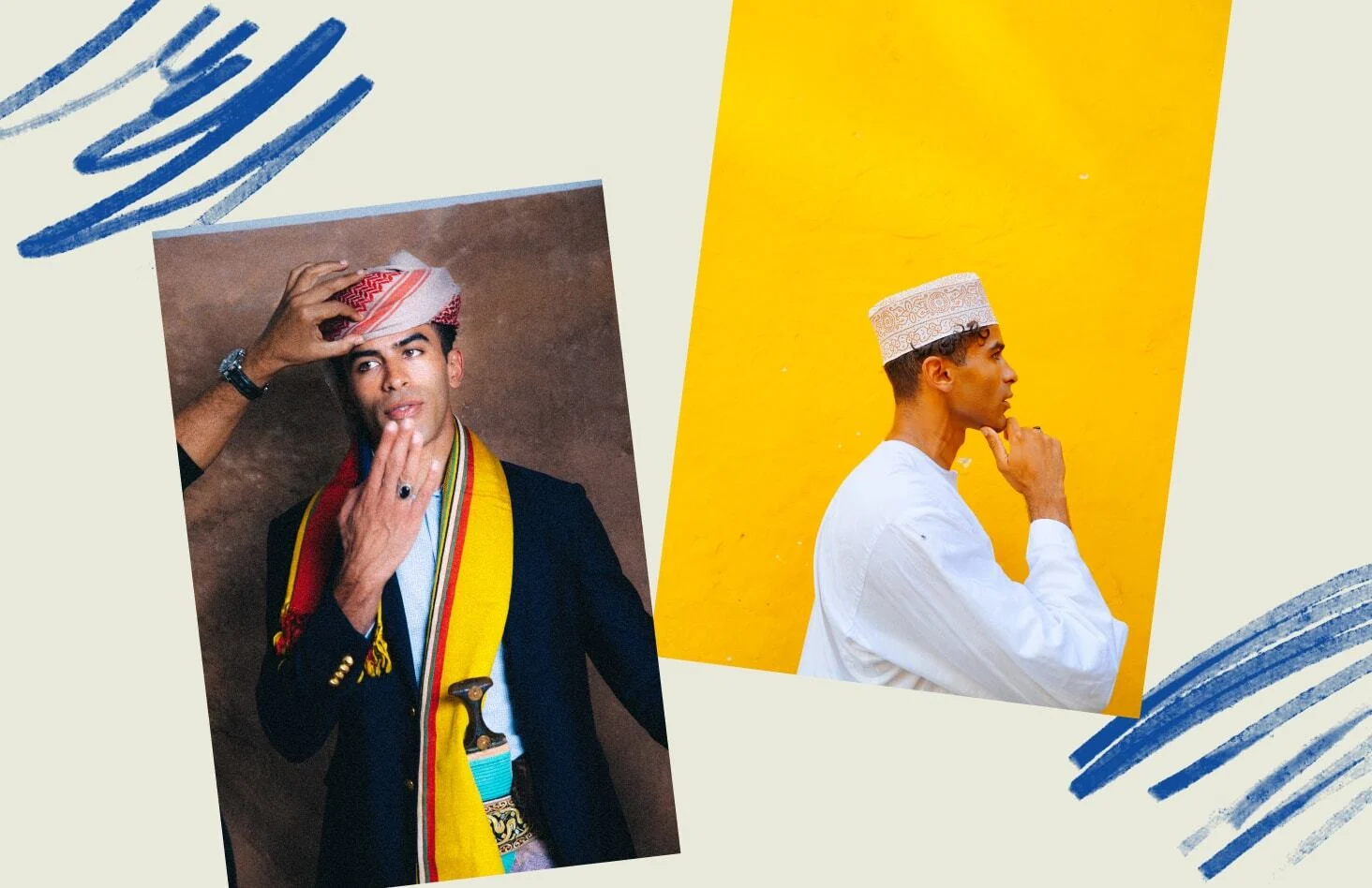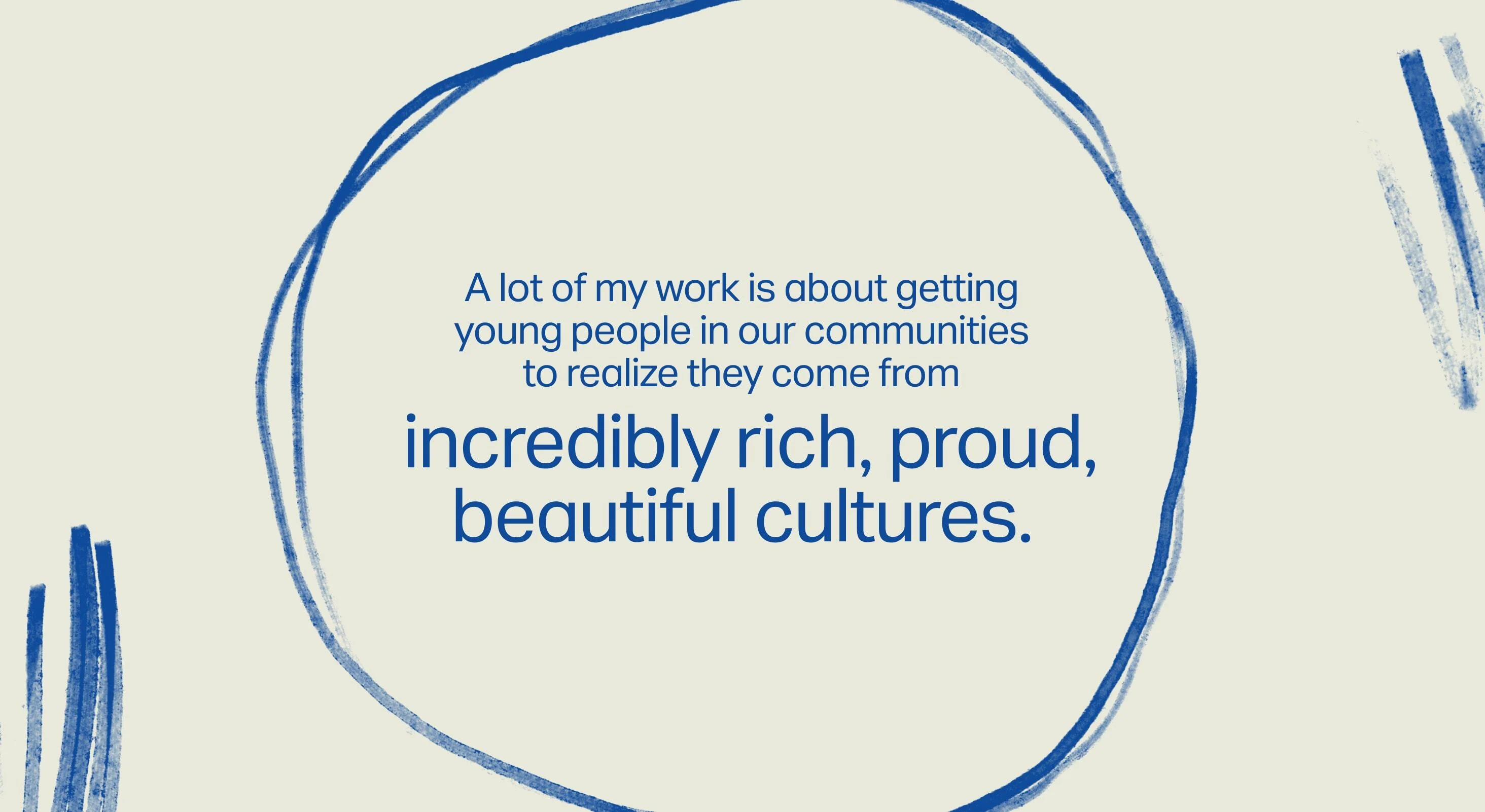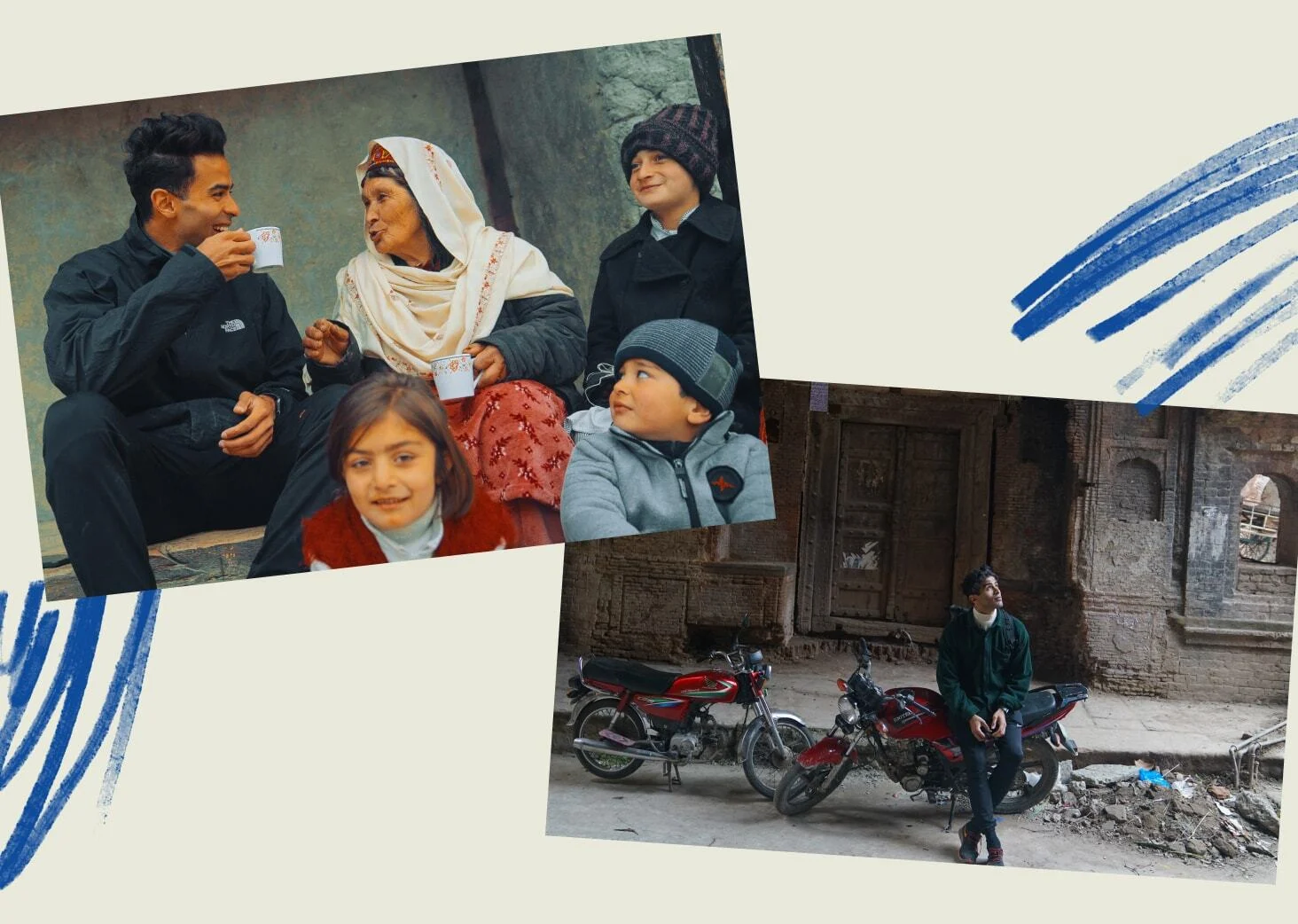

Nadir Nahdi is a presenter, film-maker and producer from London with Yemeni, Indonesian, Pakistani and Kenyan heritage. He is the creator of BENI: a platform of honest travel and diaspora storytelling. “Nadir is one of the most effortlessly charismatic storytellers out there. Travel and food are the tools he uses to connect us to other cultures, our own histories, and each other,” says WePresent's Guest Curator Riz Ahmed. “He writes, shoots and edits videos that teach us how to cook and who we are at the same time.” Here Nadir speaks to Dalia Al-Dujaili about the importance of communicating important information to people via the channels they readily consume media from.
I was sitting in a dark, air conditioned room in Jeddah, Saudi Arabia, with an entranced and hungry audience listening to Nadir Nahdi give a presentation about the Indian Ocean’s culinary migrations when it became clear to me just how far stretched food can be, and Nadir’s storytelling helps many of us understand this. He explained how the dishes he had cooked for us that evening had travelled to many locations around the Indian Ocean, from Indonesian islands to Arabian coasts, evolving and changing at every location they arrived in or passed through. Today, Nadir has amassed an impressive following on Instagram and YouTube by explaining through bitesize videos and reels these very same stories from around the world.
Nadir started creating content at 27 and “never looked back.” He’s a presenter, film-maker and producer from London and was recently voted by the “Evening Standard” as one of “the most influential Londoners,” though he has called, and still calls, many places around the world home. From reels explaining the history of Qamar al Deen (an Islamic drink) to podcasts unpacking masculinity in Asian culture, he seeks to articulate the experiences of a global south diaspora. A scroll through his Instagram shows his love for beautifully presented stories and culinary excellence. But the food, Nadir says, is a narrative “Trojan horse.”
“I’m really passionate about the diaspora community because they are the ones that are able to bridge divides that previously have crippled societies and communities. My interest in cultural mobility stems broadly from my own experiences,” says Nadir, who has Indonesian, Yemeni, Kenyan and Pakistani heritage. “I realized stepping into the public that people could not place me in these constrained boxes which they were used to and I started to feel less-than.” As he grew older and began making content, he started to realise his cultural mobility was his “superpower, and as the world increasingly is getting more globalised, we’re starting to witness a lot more people with these kinds of experiences,” he explains.
Nadir comes from a humanitarian background, with an activist family; his father is the late Fuad Nahdi, a prominent British Muslim journalist and activist who worked to bridge interfaith divides throughout his life. Coming from a value-driven family, Nadir thought humanitarian and developmental work would be the most impactful as he was coming-of-age. But he also came from a creative community and quickly realised that telling stories was a different way to cause impact.

After making a YouTube that went viral overnight, he left his job and committed to the creative world. “Over a span of years, it’s taken different iterations. It’s grown and improved. But what was really liberating about new media was that it did not carry the old restraints that traditional media had crippled our communities with. There weren’t any white producers in a boardroom telling us what we can and can't say. There were audiences for the narratives that we wanted to tell. Suddenly I could prove that I had an idea, film it the same day, post it that night and the next day it could have thousands of views, and that was incredibly liberating in the context of being told that your stories had no worth. We had these democratic platforms that we could prove otherwise.”
But after making content aimed at diasporic communities like his, Nadir started to realise that there was no point screaming into an echo chamber. If he was going to make any real impact, the question was how to get people from outside his experiences to emotionally invest in these stories. “That’s when the storytelling started to develop and evolve in very different ways. Such as employing food as a tool to tell stories.” Anthony Bourdain had always been Nadir’s “north star,” admiring “the way he was able to build bridges between communities”. That is when he began using food as a vehicle for storytelling, as he realised that audiences that had previously had never had access to these stories began to feel welcome in the conversation. “A storytelling Trojan horse: you package the story in something that’s relatable, amenable, and likeable. Then, out of that Trojan horse comes the real story of meaning and substance.”
For example, his video on Jaffa Cakes, a nostalgic British symbol which we all grew up eating, did particularly well, receiving almost 30,000 likes. By flipping a simple British biscuit (or cake?) on its head, Nadir was able to tell a brief yet important story about Occupied Palestine which could be used as an introduction for many to colonial history in the region. Another recent video explained how Parmesan cheese is being preserved by Indian farmers. “The story of Parmesan isn’t new, but the fact that turbaned Punjabi Sikhs are literally preserving this iconic Italian ingredient is the unique factor.”
The skill here is condensing incredibly rich and informative resources into compelling snippets, which he says is the creativity of a content creator: “understanding the human psyche enough to know what will compel someone to be moved, to share it, to tell their network. It’s basically a miniaturised version of any Hollywood film. The story has to have an arc,” something he is on a mission to teach others through his storytelling academy, Beni Space: a content storytelling course through which Nadir helps content creators go viral and maximise the reach and social impact of important cultural stories.

As is true for any diaspora, food was Nadir’s gateway to his cultures, “whether it’s a grandmother’s or a parent’s dish,” he says, “we latch onto these as people who’ve been born and raised elsewhere. Because for a moment, for the duration of that meal, we’re transported into what we believe to be this romanticised idea of home. And that’s quite a magical experience to share with people.”
Though Nadir is successful in being able to transplant cultural and historical stories into enticing and celebratory videos with a huge reach, Nadir’s real mission is a little more complex than mere celebration of heritage. “A lot of us are passionate about preserving things like recipes because they mean a lot to the people we love. There’s something really admirable about celebrating that. But I don’t want to be constrained by culture or identity through my work.
“A lot of my work is about getting young people in our communities to realize they come from incredibly rich, proud, beautiful cultures,” he continues, “but culture can be a constraint. This is something I’ve been working on recently – this idea that some culture must die. A lot of us are holding on to this nostalgic idea of what it means to be Iraqi, Pakistani, Turkish, in a way that constrains everything we could be when moving forward. I wonder: how do we become porous cultures again?”
Looking forward, Nadir tells me he is excited about giving birth to a new format of story-telling inspired by his icon Bourdain—more bite-sized, but equally impactful. “Think: Bourdain meets Subway Takes.” He hopes to travel around the world, getting cultural snapshots through shared meals with people, where he can continue to shatter constrained ideas around culture and identity.







